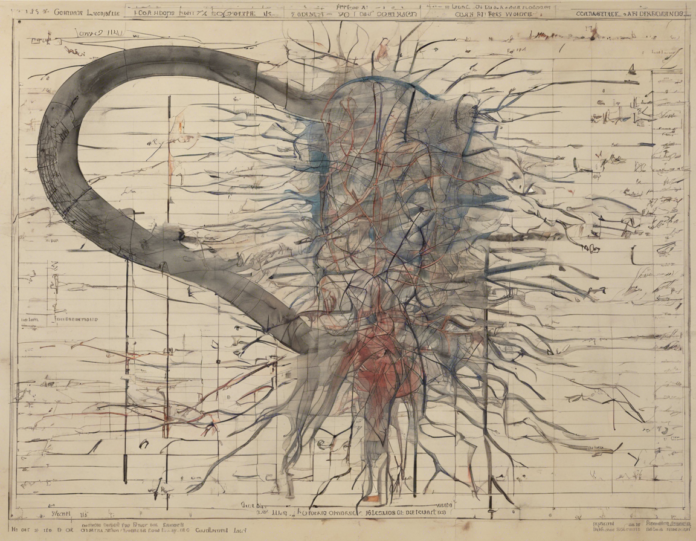Introduction:
Conservation of energy is a fundamental principle in physics, stating that the total energy within a closed system remains constant over time. This concept is crucial in understanding various phenomena in nature, from simple mechanical systems to complex electromagnetic interactions. One key aspect of conservation of energy is Lenz’s Law, which plays a significant role in electromagnetic induction and the behavior of magnetic fields. In this article, we will delve into the details of Lenz’s Law, its implications, and its applications in the context of energy conservation.
What is Lenz’s Law?
Lenz’s Law, formulated by the Russian physicist Heinrich Lenz in 1834, is a basic law of electromagnetism. It states that the direction of an induced current in a conductor will always be such that it produces a magnetic field that opposes the change in magnetic flux that produced it. In simpler terms, when there is a change in magnetic flux through a circuit, an induced electromotive force (emf) will be generated that creates a current to counteract the change in flux.
Implications of Lenz’s Law:
Understanding Lenz’s Law is crucial for comprehending the behavior of electromagnetic systems. Some key implications of Lenz’s Law include:
-
Conservation of Energy: Lenz’s Law is a manifestation of the principle of conservation of energy. The work done by the induced current in producing a magnetic field to oppose the change in flux is a form of energy conversion. This process ensures that energy is conserved in the system.
-
Eddy Currents: Lenz’s Law explains the phenomenon of eddy currents, which are induced currents that circulate within conductive materials in response to changing magnetic fields. These currents create resistive forces that oppose the motion, leading to the dissipation of energy in the form of heat.
-
Electromagnetic Induction: Lenz’s Law plays a crucial role in electromagnetic induction, where a changing magnetic field induces an emf in a circuit. The direction of the induced current follows Lenz’s Law, producing a magnetic field that counters the change in flux.
-
Motional emf: Lenz’s Law is also applicable to cases where a conductor moves through a magnetic field, causing a change in magnetic flux. The induced emf in the conductor will create a current that opposes the motion, in accordance with Lenz’s Law.
Applications of Lenz’s Law:
Lenz’s Law finds applications in various areas of technology and physics, including:
-
Transformers: In transformers, Lenz’s Law ensures efficient energy transfer by maintaining the balance of currents in the primary and secondary coils.
-
Electric Generators: Lenz’s Law is fundamental to the operation of electric generators, where the relative motion between a magnetic field and conductors induces a current.
-
Eddy Current Brakes: Eddy current brakes utilize Lenz’s Law to create resistive forces that decelerate moving objects, such as trains and roller coasters, with precision and control.
-
Induction Heating: Lenz’s Law is employed in induction heating processes to generate heat in conductive materials by inducing currents that dissipate energy as heat.
FAQs:
-
What is the relationship between Lenz’s Law and Faraday’s Law of electromagnetic induction?
Lenz’s Law complements Faraday’s Law of electromagnetic induction by specifying the direction of the induced current in response to changes in magnetic flux. -
How does Lenz’s Law ensure energy conservation in electromagnetic systems?
Lenz’s Law ensures energy conservation by generating currents that produce magnetic fields opposing changes in flux, thereby conserving the energy of the system. -
What are eddy currents, and how do they relate to Lenz’s Law?
Eddy currents are circulating currents induced in conductive materials by changing magnetic fields. Lenz’s Law governs the direction of these currents to oppose the changes in magnetic flux. -
Can Lenz’s Law be violated in any practical scenarios?
Lenz’s Law is a fundamental law of electromagnetism and is not known to be violated in any practical scenarios. It has been consistently validated by experimental observations. -
How does Lenz’s Law impact the efficiency of electromagnetic devices like electric motors?
Lenz’s Law influences the efficiency of electromagnetic devices by ensuring that induced currents produce magnetic fields that optimize the operation of the system, minimizing energy losses.
In conclusion, Lenz’s Law is a fundamental principle in electromagnetism that underscores the importance of energy conservation in electromagnetic systems. By understanding and applying Lenz’s Law, scientists and engineers can design efficient devices and processes that harness the power of electromagnetic induction while conserving energy in the process.


Recent comments